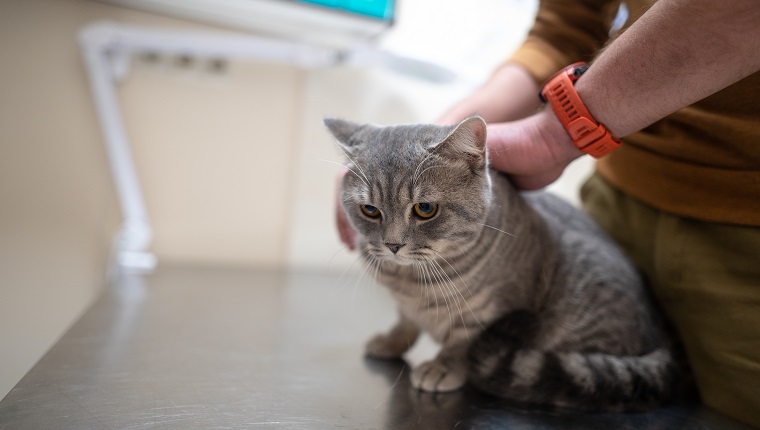Hyposthenuria in cats is medical condition that is caused by a chemical imbalance in a cat’s urine. It can result from a number of factors, including experiencing trauma, suffering from hormonal issues, and developing tension in the kidneys.
The condition often results in a cat either urinating more than usual or drinking more water than normal.
If you see signs that your cat is developing symptoms of a chemical imbalance, then you must consult your veterinarian immediately. Here’s what you should know about the symptoms, causes, and treatments of hyposthenuria in cats.
Symptoms Of Hyposthenuria In Cats
Hyposthenuria in cats can produce a number of symptoms depending on the precise underlying cause of the condition. Some of the most frequent symptoms include:
- Drinking a lot more water than usual
- Urinating more than usual
- Urinating outside of the litter box
- Bad breath
- Incontinence
- Losing weight
Causes Of Hyposthenuria In Cats

The cause of hyposthenuria in cats is a chemical imbalance in the urine that usually involves issues with a cat’s antidiuretic hormone (ADH). Some of the other common factors that can contribute to the condition include:
- Trauma
- Tension around the kidneys
- Damage to the renal tubule
- Diabetes
- Endocrine issues
- Hormonal imbalances
Treatments For Hyposthenuria In Cats
If you worry that your cat might be suffering from hyposthenuria, then your veterinarian will want to conduct a full physical examination. They’ll generally order blood and urine tests, with the latter being used to monitor the urine specific gravity. This can help to determine how well the kidneys are functioning.
The use of ultrasound imaging can also help to confirm a diagnosis.
The precise course of treatment will then depend on identifying the underlying cause of the condition. Vets also commonly use fluid therapy as part of a course of treatment.
In general, cats who have been treated for this condition should keep up regular appointments with their vet to accurately monitor the state of their health.
Has your cat ever developed hyposthenuria? What steps did your vet take to treat your cat? Tell us all about it in the comments below.









